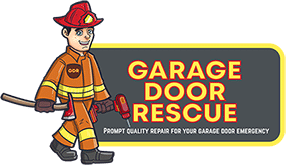Garage door springs are vital for the smooth operation of your garage door. Without them, lifting and lowering the door would be almost impossible. These springs bear a lot of weight and stress, which means they can wear out over time. Knowing how to make your garage door springs last can save you from unexpected breakdowns and costly repairs.
In this article, we will explore different ways to keep your garage door springs lasting longer. We’ll look into regular maintenance tips, the signs that your springs are wearing out, and when you should call a professional for help.
Understanding Garage Door Springs
Garage door springs play a crucial role in the operation of your garage door. These springs come in two main types: torsion springs and extension springs. Torsion springs are located above the garage door opening and twist to lift the door. Extension springs run along the sides of the door and extend to provide the counterbalance.
Torsion springs are usually more durable and last longer than extension springs. They can handle heavier doors and provide smoother operation. However, both types are essential for your garage door’s function, and knowing the differences can help you take better care of them.
When one type of spring fails, the other usually takes on more load, leading to faster wear and potential damage. Understanding how these springs work helps you spot early signs of issues and address them before they become serious problems.
Regular Maintenance Tips
Maintaining your garage door springs doesn’t require a lot of effort, but regular attention can make a big difference. Here are some simple tips to keep your springs in top shape:
1. Lubricate Springs: Use a silicone-based lubricant to oil the springs every three to four months. This helps reduce friction and prevents rust. Avoid using grease or oil, as they can attract dirt and grime.
2. Check Balance: Disconnect the garage door opener and manually lift the door halfway. If it stays in place, the springs are balanced. If it falls or rises, the springs may need adjustment.
3. Inspect Regularly: Look for signs of wear, like gaps between coils or rust. If you see any damage, it’s important to address it right away to prevent further issues.
4. Keep Door Clean: Dirt and debris can cause extra strain on the springs. Clean the tracks and the door itself regularly to ensure smooth operation.
5. Limit Usage: Try to avoid unnecessary opening and closing of the garage door. Each cycle adds stress to the springs, shortening their lifespan.
Signs of Wear and Tear
Even with regular maintenance, garage door springs will eventually show signs of wear and tear. Recognizing these signs early can help prevent more severe problems. Here are some common indicators that your springs might be wearing out:
1. Gaps Between Coils: If you see gaps between the coils of your torsion springs, this is a clear sign that the spring has lost tension and is no longer working as it should.
2. Rust and Corrosion: Rust on the springs can weaken them, making them less effective and more prone to breaking. Regular inspection will help you catch rust early, allowing you to clean and lubricate the springs before too much damage occurs.
3. Loud Noises: If your garage door makes loud creaking or banging sounds when opening or closing, the springs might be the source of the problem. These noises can indicate that the springs are under too much stress or are about to fail.
4. Slow Opening or Closing: If your garage door takes longer than usual to open or close, the springs might be losing their strength. This can strain the garage door opener and other components.
5. Door Imbalance: An imbalanced door—where one side appears higher than the other—often points to spring issues. This imbalance can make the door harder to operate and can stress the remaining working parts.
When to Call a Professional
While regular maintenance and early detection of problems are important, some issues are best handled by a professional. Knowing when to call an expert can save you time, money, and ensure your safety. Here are situations where professional help is necessary:
1. Broken Springs: If a spring breaks, it can make a loud bang and leave the door unable to open or close. Broken springs are dangerous to replace on your own. Always call a professional for this repair to avoid injury.
2. Frequent Repairs: If you’re constantly fixing small issues with your garage door, there might be an underlying problem with the springs or other components. A professional can diagnose the root cause and provide a long-term solution.
3. Door Off Track: If your garage door comes off its tracks, do not attempt to force it back into place. This can cause more damage or result in injuries. A professional technician will realign the door and check for any additional damage.
4. Unusual Noises: While some noises can be part of regular wear and tear, constant or loud noises should be inspected by a professional. They can identify and fix the source of the problem, ensuring the springs and other components are in good working order.
5. Annual Inspection: Even if everything seems to be working fine, it’s a good idea to have a professional inspect your garage door system annually. They can catch potential issues early, extending the life of your springs and other parts.
Conclusion
Making your garage door springs last longer involves understanding what they do, maintaining them regularly, and knowing when to call for professional help. By keeping an eye out for signs of wear and taking timely action, you can avoid major hassles and keep your garage door working smoothly.
Don’t wait until small issues turn into big problems. If you notice any signs that your garage door springs need attention, it’s time to act. Look no further than Garage Door Rescue for expert help and keep your garage door running efficiently. Reach out today to schedule a consultation.

